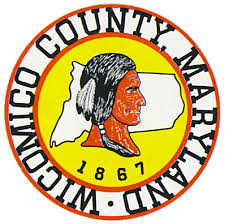
Every week, we hear from food pantries, schools, and local nonprofits struggling to meet a growing need: families who simply don’t have enough to eat. These are not strangers or statistics; these are our neighbors.
Those in need include our most vulnerable neighbors—the very young, the elderly, those with disabilities—and those folks who work hard yet still struggle to cover the basics. These working neighbors are part of the ALICE® population (Asset Limited, Income Constrained, Employed) and here on the Eastern Shore, they’re nearly half of all local households, with an average of 47% struggling across the Lower Shore.
The Supplemental Nutrition Assistance Program (SNAP) is the nation’s first line of defense against hunger. It provides essential grocery assistance to more than 40 million Americans, including about 40,000 people across Dorchester, Somerset, Wicomico and Worcester counties. These numbers tell a clear story: on the Eastern Shore hunger is a reality facing our neighbors, classmates, coworkers, families.
While charitable organizations do all we can to fill the gaps, the truth is: philanthropy alone cannot solve hunger. We need strong public programs like SNAP to ensure that every family can put healthy food on the table with dignity. For every meal provided by charities, SNAP provides nine. A missed shift to care for a sick child, a car repair, a medical bill—any one of these can tip a working family into crisis.
It is important to recognize that hunger is more than just a humanitarian issue; it’s also an economic one. That’s why the federal SNAP program matters so much in our region. Families facing food insecurity struggle to focus on work, and face hard choices balancing the cost of food, housing, childcare and healthcare. Children who go hungry fall behind academically. Healthcare costs for everyone rise as poor nutrition fuels chronic disease. When we strengthen SNAP, we strengthen our entire community. SNAP doesn’t just feed families; every dollar spent locally circulates through our grocery stores, corner markets, and agricultural network. In Maryland, each SNAP dollar generates roughly $1.80 in additional economic activity.
While progress is being made to restore SNAP funding, there is no guarantee how quickly the dollars will flow or how far they will go as the shutdown impacts continue. We call on policymakers to protect and expand SNAP benefits in the upcoming farm bill and to listen to the voices of those closest to the issue: local service providers, food justice advocates, and the families themselves.
Here on the Shore, we’ll continue doing what we do best – collaborating, innovating, and investing in solutions that build resilience with our incredible network of nonprofits. We are thankful for the many organizations and community members who are lifting up food drives, donations and volunteering in response to growing local needs. But no amount of charitable giving can replace the power of sound public policies and programs working alongside us.
When every person in every neighborhood has enough to eat, and can access resources they need, our whole community thrives. That’s the resilience and foundation we all deserve.
If you or someone you know needs assistance, find resources here:
Call 211 (available 24/7) or visit www.211md.org, or www.uwles.org/resources.
To provide financial support to local organizations responding to this need, please visit www.shoregives365.org or www.uwles.org/LiveUnitedResponseFund.



